The first colony of wild beavers to inhabit an English river for around 400 years has expanded.
One of the female beavers on the River Otter in Devon has given birth to at least two – and possibly as many as four – kits.
Retired environmental scientist and keen beaver watcher Tom Buckley captured the vivid footage of two kits possibly taking their first swim. In one clip the mother beaver appears to be giving the kit a tour of the river, holding the young animal carefully in her jaws. In a second, a young beaver appears not to be too keen on swimming and heads speedily back to the bank.
Buckley said: “When I saw these new born baby beavers I was totally overwhelmed and thought it must be a miracle. My first sighting of this year’s new born kits was when I saw their mother swimming with one of them in her mouth to an area nearby where their father was waiting to greet them.
“One of the kits, however, seemed extremely unhappy to be out in the big wide world and as soon as its mother let it go it rushed back to its burrow. Not surprising really – the world can be a very scary place. This was possibly their first experience of what lies outside of their burrow.”
A population of beavers was first confirmed on the River Otter in February 2014. This was the first time that breeding beavers were known to be living in the English countryside in as much as 400 years.
In summer 2014 the department for environment, food and rural affairs expressed its intention to remove the animals, citing fears that they might be carrying a disease.
Devon Wildlife Trust built a partnership of supportive local landowners, academic institutions and beaver veterinary and management experts to suggest creating a wild beaver monitoring project.
It captured the beavers to check if they were healthy and re-released them into the wild. The trust now believes there are at least 11 beavers in the river – including the two babies – but believes there could be as many as 15.
Devon Wildlife Trust’s Mark Elliott said: “We are thrilled that the beavers have bred. The baby kits appear fit and healthy and the adults seem as if they are taking their parenting responsibilities very seriously. It tells us that the beavers are very much at home in this corner of Devon.
“The slowly expanding population of these wild animals will help us to gain valuable insights into beavers and their environment – both in terms of animal behaviour and any benefits and effects on the surrounding river system.”
Elliott also asked people not to disturb the beavers. “The beavers have proved enormously popular with local people and we understand that many will now want to see the kits for themselves. But like all new parents, the beavers will need a bit of space and peace at this time. So we ask that visitors take care not to disturb them. This means remaining on public footpaths, keeping a respectful distance from them, and keeping dogs under close control, especially when near the river.”
He said that beavers give birth to an average of three kits and not all kits would make it to adulthood, so an expansion of the River Otter beaver population would be steady rather than rapid.

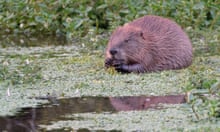
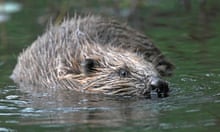
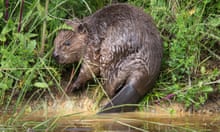

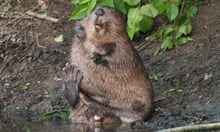

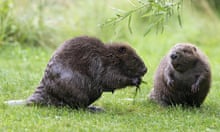
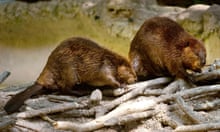
Comments (…)
Sign in or create your Guardian account to join the discussion